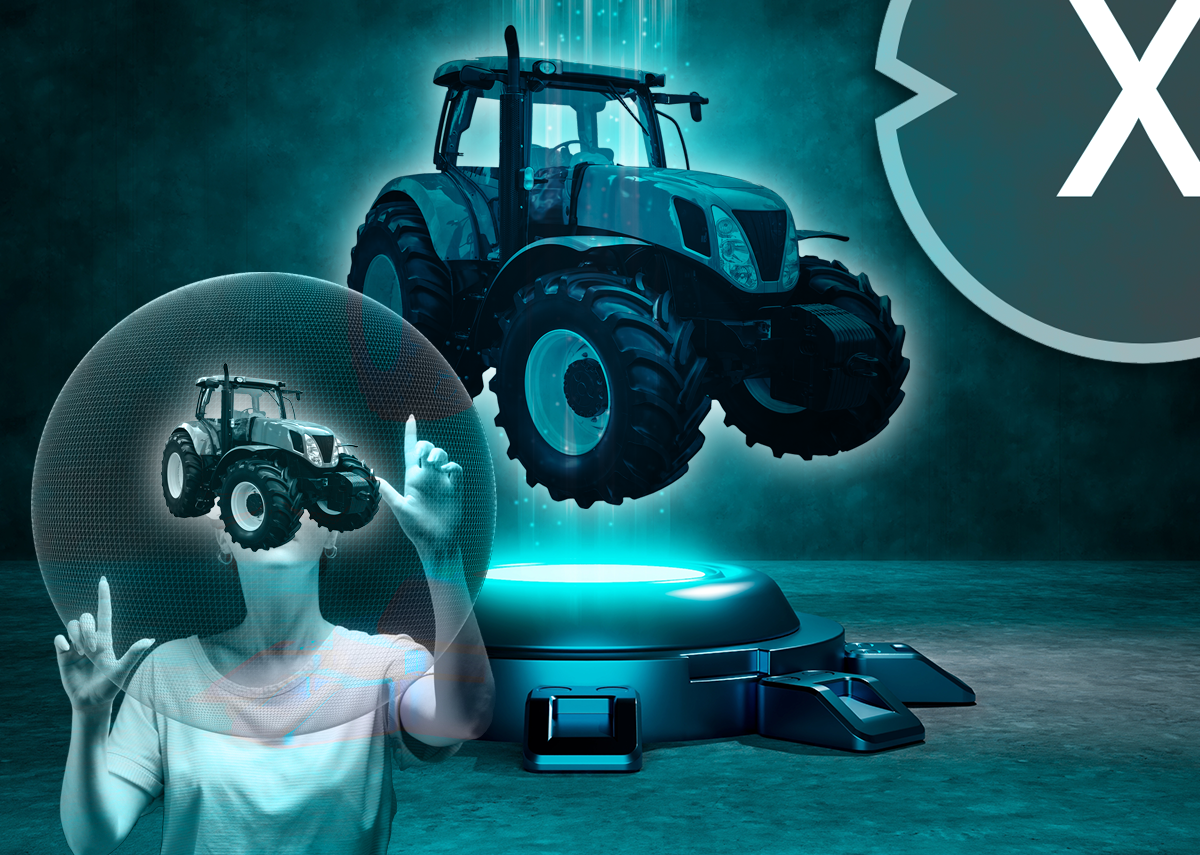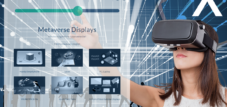
Metaverse platforms: For trade fairs, in-house exhibitions & events and showrooms – Image: Xpert.Digital
The metaverse for trade fairs and showrooms
The concept of the metaverse has gained increasing attention in recent years, particularly as a potential future for online shopping and virtual events. A key aspect of the metaverse is the concept of the "showroom," which represents a virtual environment where products and services can be presented.
Particularly in the trade fair and event sector, the trade fair and event metaverse has established itself as a promising way to offer exhibitors and visitors an interactive and immersive experience. In such a metaverse, exhibitors can present their products and services in a virtual environment that gives visitors a realistic idea of how the products look and function in the real world.
The trade fair and event metaverse offers more than just the presentation of products and services. It also provides a wide range of opportunities for interaction and networking, such as virtual discussion forums, video chats, and online presentations. Furthermore, the metaverse can serve as a platform for training and education by offering an immersive environment that allows participants to gain practical experience and network in a virtual setting.
The trade fair and event metaverse thus offers a multitude of advantages over traditional trade fairs and events. It allows exhibitors and visitors to participate from anywhere in the world and provides an interactive and immersive experience that enables them to experience products and services in a realistic environment. Furthermore, the metaverse offers a range of features that allow participants to interact and network, leading to a more effective and efficient exchange of ideas and information.
The Meta Metaverse and the Industrial Metaverse
The Meta Metaverse and the Industrial Metaverse are two different concepts that differ in their objectives and applications.
The Meta Metaverse refers to a virtual world that can be shared by multiple users. It's a platform that allows users to explore, interact with, and communicate with other users in real time. It's a place where users can play games, build social networks, trade virtual currencies, and engage in many other activities. The Meta Metaverse is being developed by companies like Meta (Facebook) and other major technology companies to enable a broader and deeper integration of virtual and physical worlds.
In contrast, the Industrial Metaverse refers to the application of virtual worlds in industrial manufacturing and production. It is a platform that enables companies to use virtual worlds to optimize and improve production processes. It allows engineers and designers to work and experiment in a virtual environment to develop more effective and efficient production methods. The Industrial Metaverse is used by companies in the manufacturing industry, such as automotive and aircraft manufacturers, to increase the productivity and efficiency of their production.
The Meta Metaverse is a platform for social activities and entertainment, while the Industrial Metaverse is a platform for industrial applications and production processes.
More information here:
The B2B / Business Metaverse
The B2B Metaverse is a virtual world specifically designed for business applications. It's a platform that companies can use to conduct business meetings, training sessions, virtual trade shows, product presentations, and other business activities. Within the B2B Metaverse, companies can collaborate in a secure environment without requiring physical presence. It can also be used as a platform for virtual product development and testing, saving time and money.
In summary, the Meta Metaverse focuses on social interaction and entertainment, while the B2B Metaverse targets business applications and collaboration. The B2B Metaverse aims to help companies optimize their business processes and increase their productivity, while the Meta Metaverse primarily serves as a platform for social activities and entertainment.
Just try out our universally applicable (B2B/Business/Industrial) Metaverse configurator for all CAD / 3D demo options:
Virtual showrooms and augmented reality are the cornerstones of the business metaverse
Extended Reality and Virtual Showrooms are the concept behind Metaverse platforms – Image: Xpert.Digital
The Business Metaverse is a concept that refers to the use of virtual and augmented reality technologies to offer businesses and their customers an immersive and interactive experience. Virtual showrooms and augmented reality are two key pillars of the Business Metaverse, as they enable companies to present their products and services in new and engaging ways.
Virtual showrooms are digital spaces filled with a variety of products offered by companies. Customers can visit these spaces to view products from different perspectives, interact with them, and make purchases. Virtual showrooms can be entirely virtual or a combination of virtual and physical elements.
Augmented Reality (AR) is a technology that allows users to integrate digital content into the physical world. In the context of the business metaverse, companies can use AR to present their products and services in an interactive and engaging way. For example, customers can scan a QR code on a product label or open an AR app on their smartphone to view additional information, images, or videos about the product.
Virtual showrooms and augmented reality offer companies the opportunity to overcome the boundaries between the physical and digital worlds and provide their customers with an immersive and engaging experience. By integrating technology into their business processes, companies can create new opportunities for growth and success.
In 2027, the data matrix code or QR code will replace the barcode
2D matrix code can be used for WebAR or WebXR (3D product presentation in augmented reality)!
Consulting, planning and implementation of augmented reality, webAR and industrial applications | B2B | Business Metaverse
Xpert.Plus is a project from Xpert.Digital. We have many years of experience in supporting and advising on (Extended) Augmented Reality and in warehouse optimization , which we bundle in a large network under Xpert.Plus .
I would be happy to serve as your personal advisor.
You can contact me by filling out the contact form below or simply call me on +49 89 89 674 804 (Munich) .
I'm looking forward to our joint project.
Xpert.Digital – Konrad Wolfenstein
Xpert.Digital is a hub for industry with a focus on digitalization, mechanical engineering, logistics/intralogistics and photovoltaics.
With our 360° business development solution, we support well-known companies from new business to after sales.
Market intelligence, smarketing, marketing automation, content development, PR, mail campaigns, personalized social media and lead nurturing are part of our digital tools.
You can find out more at: www.xpert.digital – www.xpert.solar – www.xpert.plus

